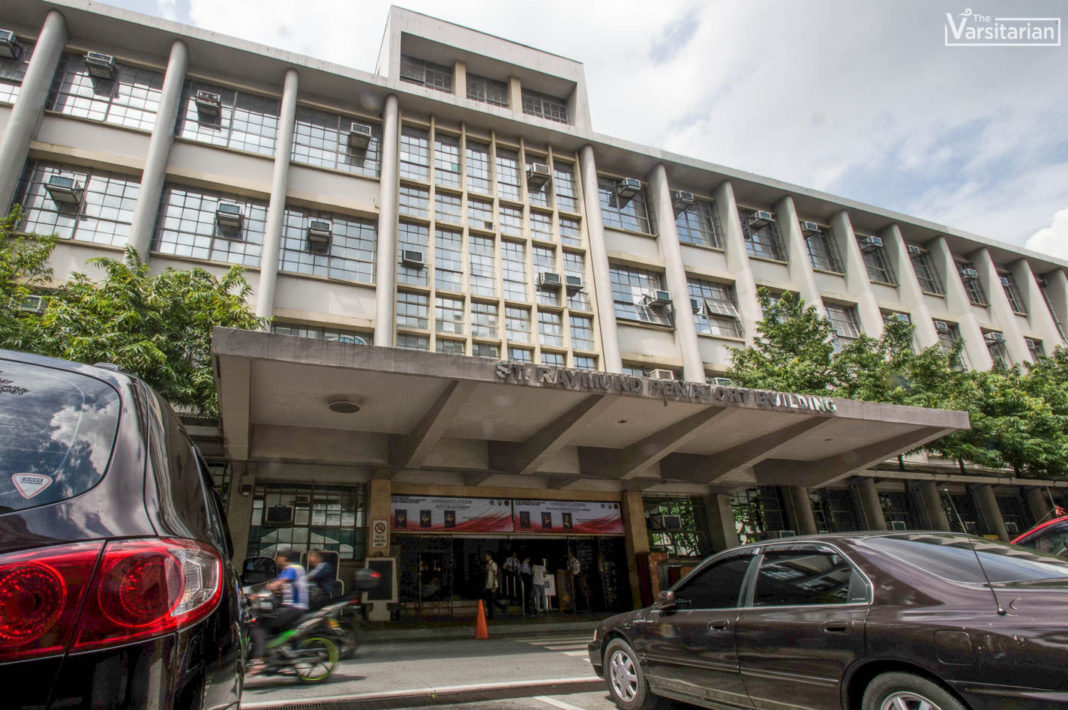DURING THE celebration of the 50th anniversary of Artlets batch ‘69, Faculty of Arts and Letters (AB) Dean Marilu Madrunio tasked several alumni to develop a project that answers to her plan of equipping the future Artlet graduates with competencies to survive in a volatile and uncertain world.
Eyra Umali, Erlie Lopez and Tita Puangco responded to Madrunio’s call and immediately laid down a plan. However, the pandemic decelerated their preparations.
It was until March 2021 that they found a way to communicate with Madrunio on resuming their plan. Only this time, they thought: Why not expand it to a bigger scope and attach the plans to the upcoming elections?
“Because the competency mapping was preparing the youth Artlets for their future careers after graduation, so part of that is the leadership. And then, we thought, well, we’re selecting our national leaders in a few months, so why not expand to that?” Lopez told The Flame and The Varsitarian in a joint interview.
Their batchmates, alongside Madrunio, supported the initiative, hence, the creation of Intelligent Youth Vote (IYV), which aims to enlighten the youth—composing more than half of the voting population—on how to decide critically during elections on the extensive peril in the collective voting attitude.
“We realized [that] our election culture is very… skimpy,” Puangco said, explaining what motivated them from starting the organization.
According to Umali, Lopez, and Puangco, voting intelligently is insufficient considering the Filipinos’ voting attitude which lacks independence and criticalness in terms of assessing the candidates’ competence in leading the nation.
Puangco argued that the lack of intelligent voting is dominated by four mindsets. First is the “command vote,” wherein the voter depends on the decision of the authoritative figure or figures. Voting for the candidate who paid the highest for his or her vote is called the “market vote.” “Popular vote” is when people vote based on who tops surveys. Lastly, Puangco called the kind of mindset wherein voters pick candidates according to their looks as “guapo or guapa vote.”
Meanwhile, Lopez said that the importance of elections, in a longer term, is really for the younger generations.
“So, we should really help the youth, invite them, so they will be really able to think well and vote intelligently,” Lopez said.
Merging their skills, the three project proponents—two of which are public relations specialists and an economist—mainly used social media to convey their message.
With the assistance of their “millennial children,” they trained the University’s communication and journalism students on effectively creating social media content that would muster interest from users.
The reason why they chose social media as the medium of their advocacy is that they believe that most people are online nowadays, they said.
“So [Erlie and her team] had started to train communication and journalism students of Artlets [on] how to do TikTok and other social media [content]. So now, they’re starting to contribute to Facebook,” Puangco said.
As of writing, IYV has already conducted a number of online workshops and seminars adapting their drafted competency-based assessment questionnaire.
The competency-based approach aims to assess the candidates based on their integrity, leadership experience, nationalistic attitude, managing national transformation, communication skills, professional management, thinking system, and educational background.
“[T]he competency mapping na ‘yan. Required na ‘yan sa trabaho, so bakit ‘di natin iidentify ang requirement ng isang presidentiable. So, applicable to presidentiables, applicable to other government officials,” Umali said.
IYV has released several essays and literary works promoting the power of voting and reminding the public of the possible consequences of voting for incompetent leaders.
Reaching hands beyond online
IYV also opened its doors to various communities and groups. Among the groups they have partnered with are the Sons and Daughters of Mary Immaculate, Phinma Group, New Youth Movement of the Focolare, Inner wheel, and Rotaractors of the Rotary Club of Marikina Center.
“With the seminars—with the sessions we conducted—it is very nice when the participants have started to say, ‘You know what ma’am, after all, some of the candidates have something good in each one of them.’,” Umali shared.
“It enlightened them into the process. So I said when we were processing, ‘How does it feel when you vote based on what the barangay captain is saying?’ [They said,] ‘It doesn’t feel good, Ma’am, because it is not us who is making the decision.’,” she added.
Despite their success in enlightening some people, there are still challenges that they frequently face. One of these is the lack of time—or as what they said that time is a “core constraint” as the elections are only a few days ahead.
“Nag-umpisa tayo ng project and our time is limited. We only reached a maximum of a thousand-plus people of student leaders of different intergenerational audiences,” Puangco said.
Umali added that culture also found its way to challenge them.
“For example, we contacted several big seminary consortiums of seminary groups. They are interested in having the program, but at a certain point, they gave up the idea already when over prayer they have already decided to vote for Leni [Robredo],” she said.
Nonetheless, culture is their foundational core as IYV founders hope that the votes’ attitude will rely on criticalness in assessing candidates based on their competencies.
“[IYV] is a start-up to the counterculture that we want to establish so parang it is a different culture now that we have introduced through a competency-based,” Umali said.
“The first that we are influencing is the change in the election culture. Shifting it from very frenzy reasons of electing people to more solid [reasons] such as competencies. So makikita nyo culture change talaga ang aming interest,” Puangco said.














